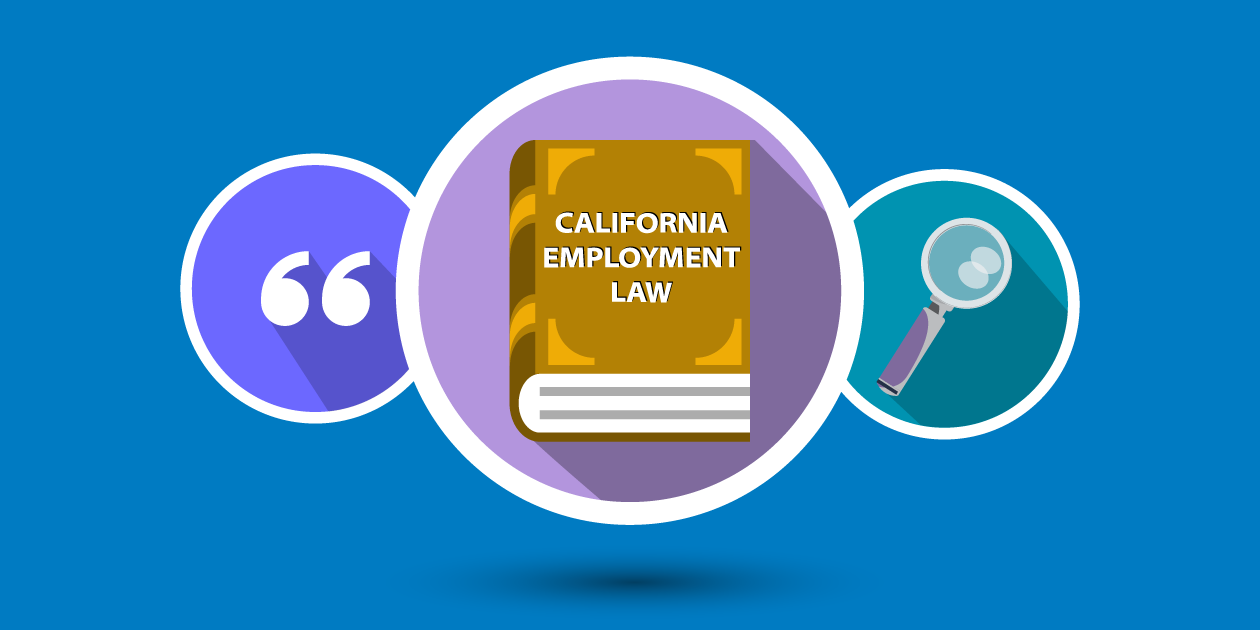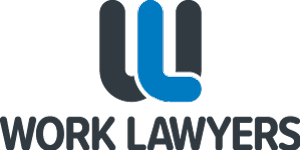
This article explains the limits on what former employers in California can say about job applicants when talking to recruiters, hiring managers, or potential employers.


February 20, 2023
February 20, 2023
When applying for new jobs, many California employees face a common concern: they didn’t leave their last job on the best terms, but they have to give an honest list of their last jobs to their prospective employer.
In general, a former employer has a right to make truthful statements about the reason why an employee was fired (or why they quit) if they are asked by a potential employer.1 In fact, communications between a former and prospective employer are often considered “privileged,” in that they cannot be used as evidence in a lawsuit.2
This is sometimes referred to as the common-interest privilege.3 This privilege, however, has important limits. This article will take a closer look at the common-interest privilege, it’s limits, and more.
Former Employers Have a Qualified Privilege

As mentioned above, communications between a former and prospective employer are generally subject to a common-interest privilege that makes them admissible in court.4 But an employer does not have any legal protections if they made the statement maliciously, with the intent to harm the interests of the former employee.5
And, if the information was given without being requested by the potential employer, it is strong evidence that the statement is false or made with the intent to prevent the employee from being hired.6 If that is the case, the former employer may have broken the law by volunteering the information.7
As such, many employers choose to limit the content of their communications with prospective employers to simply stating facts like:
The dates of the worker’s employment, Their job title, and Whether they are rehirable.Of note, California law specifically protects this last category of information. Former employers are always authorized to state whether they would rehire a person if asked.8
But, if an employer breaks the law and provides false information about a former employee to a potential employer, or they provide unsolicited information about the employee with the intent to prevent them from getting hired, the former employee can sue the employer for the damages they experience as a result.9
Such lawsuits commonly accuse the former employer of defamation, a legal claim that the former employer made false statements about the employee that caused damage to their reputation.
What It Means for a Statement to Be “Privileged”

As mentioned above, communications between a former and potential employer are often treated as a privileged communication, for legal purposes.10 A privileged communication is one that is not admissible in court to prove a certain thing. In the context of defamation lawsuits, a statement is only defamatory if it is not privileged.11 So, a privileged statement would be inadmissible to prove defamation.
Of course, many non-privileged statements are also inadmissible in court, but that usually has to do with rules of evidence unrelated to privilege doctrines. But privileged statements, as a category, are ones that can’t be admitted into court.
Example File User
Communications between an attorney and his or her client are often considered privileged.12 Due to the important nature of the attorney-client relationship, courts give special rights to attorneys and their clients.
Because of this, a client does not need to fear giving truthful information to his or her attorney because it cannot be used against him in court.
There are, of course, exceptions to the privilege, but as a general matter the privilege usually holds up.
In this context, the fact that a statement is privileged between a former and prospective employer simply means that the former employer cannot be liable for the content of their statements to the prospective employer. If the statement itself is not admissible to prove defamation, then the former employee cannot hold the employer accountable for the statement.
Types of Statements That Are NOT Protected

The privilege protecting former employers (i.e., the “common-interest privilege”) has several limits. Employers will not receive protection of the privilege under several circumstances:
Malicious Statements. The employer may not make statements rooted in malice against the employee.Unsolicited Communications. The employer is not protected by the common-interest privilege if they take it upon themselves to contact the new or prospective employer.
False or Reckless Statements. The employer may not knowingly make false statements about the employee, or statements about the employee that are reckless with regard to whether they are true.
Statements about Protected Activities. The employer may not make statements concerning the speech or activities of an applicant for employment if the speech or activities are constitutionally protected.
Importantly, an employer is not automatically liable for their statements simply because the statement isn’t privileged. In addition to overcoming the common-interest privilege, an employee will need to prove other facts to justify a lawsuit against the employer.
If a statement is made by a former employer with malice, the common-interest privilege protecting the employer’s reference does not arise.13 The California Supreme Court has defined malice in this context as a state of mind arising from hatred or ill will, which evidences a willingness to injure another person.14
Malice can be difficult to prove and, in many cases, it cannot be inferred by the statement itself.15
Imagine the following situation: John used to be employed by ABC Inc. His supervisor, Bob, disliked John and treated him poorly. John eventually left ABC Inc. to find another job. After he left, Bob called all of the local businesses to tell them about how terrible an employee John was. Does Bob still have the common-interest privilege protecting a former employer’s reference?
No. The privilege only kicks in if the former employer is requested by the prospective employer to give the information.16 An employer that takes their own initiative to communicate with a prospective employer, without having first been requested by the prospective employer to do so, does not receive the protections provided by the privilege.
Courts have also noted that the common-interest privilege may be lost if the former employer excessively communicates or includes statements that are irrelevant to the matters being discussed.17 Employers that want to ensure their statements remain privileged, should restrict their statements to those concerning matters being discussed.
So, in Bob’s case, because he preemptively contacted prospective employers without being requested to do so, his statements cannot be protected under the privilege protecting a former employer’s reference.
Knowingly false statements are generally not protected by the common-interest privilege.18 In fact, a former employer who misrepresents facts and prevents (or attempts to prevent) the former employee from obtaining employment can be found guilty of a crime!19
The employer must have credible evidence for the assertions it makes about former employees.20 Courts have held that an employer cannot report mere rumors or workplace gossip in a reference to prospective employers.21
So, even if a former employer believes something is true, they cannot report it to a prospective employer unless they have reasonable grounds for believing in the truth of the statements they make.22 Those reasonable grounds must be evidence-based, rather than mere speculation.
At the same time, however, a statement that is merely negligent will still be protected. The statement must have been reckless or grossly negligent to invalidate the common-interest privilege.23
Put simply, a former employer is not protected if they make a statement that they know is false, or they act with reckless disregard as to their statement’s truth or falsity.
An employer does not receive the privilege protecting a former employer’s reference if the former employer communicates about the speech or activities of the former employee if the speech or activities of the employee were protected by law.24
Whether an activity is legally-protected is a fact-specific inquiry. Examples of protected activities might include private activities,25 the exercise of a person’s right to free speech,26 a person’s right to petition in connection with a public issue, the right to collective bargaining or picketing,27 or the exercise of a person’s religion.
So, a former employer could not, for example, receive the privilege if they communicated about the fact that the worker was a member of a specific political party or that they engaged in political activities during non-work hours. Likewise, a former employer’s statements about the employee’s participation in union activity would not be protected.
As a final matter, it worth noting that former employers are sometimes contractually bound to remain silent about a former employee. This often occurs when the employee has a severance agreement or a settlement agreement that includes a “non-disparagement” clause or some other provision related to confidentiality.
As the name indicates, a non-disparagement clause is an agreement between the parties of a contract to avoid saying bad things about each other. Like confidentiality agreements, non-disparagement clauses are generally enforceable in California, with some limits (a contract may not, for example, prohibit employees from cooperating with government or law enforcement agencies).28
If an agreement prohibits an employer from speaking about certain aspects of the worker or the worker’s employment, they risk violating the agreement by saying negative things about an employee with future employers. In that situation, the employer might not be protected by the privilege between former and potential employers.
Non-Privileged Statements and Liability

As mentioned above, the mere fact that a statement is not privileged does not automatically mean that an employer is liable to the employee. To support a defamation lawsuit, the employee still must bring evidence to show that the employer has defamed him. In California, defamation requires three key facts to be proven (these are sometimes called “elements” of the claim):
Falsity. The employee must demonstrate that the person being sued (called the defendant) made a false and unprivileged statement of fact, not opinion, about the employee (called the plaintiff).
Publication. The employee must demonstrate that the false statement was communicated to someone else besides the employee. Evidence of a communication by a former employer to a prospective employer is sufficient to show “publication.” The communication can be either spoken or written.
Damage. The employee must demonstrate that damage occurred to the employee’s reputation or occupation.
The last element is often the most difficult to prove. Damaging statements can include:29
False accusations of criminal conduct. Accusing someone of a lack of integrity or honesty. Falsely claiming someone is incompetent. Making other false statements about someone else’s personal characteristics or behavior.Labor Code, § 1053 [“Nothing in this chapter shall prevent an employer or an agent, employee, superintendent or manager thereof from furnishing, upon special request therefor, a truthful statement concerning the reason for the discharge of an employee or why an employee voluntarily left the service of the employer.”].↥
Civ. Code, § 47, subd. (c).↥
Noel v. River Hills Wilsons, Inc. (2003) 113 Cal.App.4th 1363, 1367.↥
Civ. Code, § 47, subd. (c).↥
Civ. Code, § 47 [requiring a lack of “malice” as a prerequisite to the privilege].↥
Labor Code, § 1053 [“If such statement furnishes any mark, sign, or other means conveying information different from that expressed by words therein, such fact, or the fact that such statement or other means of furnishing information was given without a special request therefor is prima facie evidence of a violation of sections 1050 to 1053.”].↥
Labor Code, §§ 1050, 1053.↥
Civ. Code, § 47, subd. (c) [“This subdivision authorizes a current or former employer, or the employer’s agent, to answer whether or not the employer would rehire a current or former employee.”].↥
Labor Code, § 1054.↥
Civ. Code, § 47, subd. (c).↥
Civ. Code, §§ 45 [“Libel is a false and unprivileged publication by writing, printing, picture, effigy, or other fixed representation to the eye, which exposes any person to hatred, contempt, ridicule, or obloquy, or which causes him to be shunned or avoided, or which has a tendency to injure him in his occupation.”], 46 [similar definition for slander].↥
Evid. Code, §§ 950–962.↥
Civ. Code, § 47; Brown v. Kelly Broadcasting Co. (1989) 48 Cal.3d 711, 724 n.7.↥
Agarwal v. Johnson (1979) 25 Cal.3d 932, 944.↥
See, e.g., Civ. Code, § 48.↥
Civ. Code, § 47, subd. (c).↥
Deaile v. General Telephone Co. of California (1974) 40 Cal.App.3d 841, 847.↥
Civ. Code, § 47, subd. (c).↥
Labor Code, § 1050 [“Any person, or agent or officer thereof, who, after having discharged an employee from the service of such person or after an employee has voluntarily left such service, by any misrepresentation prevents or attempts to prevent the former employee from obtaining employment, is guilty of a misdemeanor.”].↥
Civ. Code, § 47, subd. (c).↥
Noel v. River Hills Wilsons, Inc. (2003) 113 Cal.App.4th 1363, 1375.↥
Noel v. River Hills Wilsons, Inc. (2003) 113 Cal.App.4th 1363, 1375.↥
Noel v. River Hills Wilsons, Inc. (2003) 113 Cal.App.4th 1363, 1373.↥
Civ. Code, § 47, subd. (c).↥
Cal. Const., art. I, § 1.↥
Cal. Const., art. I, § 2; U.S. Const., amend. I; Code Civ. Proc., § 425.16, subd. (b)(1).↥
Code Civ. Proc., § 527.3.↥
See, e.g., Labor Code, § 1102.5.↥
Jensen v. Hewlett Packard Co. (1993) 14 Cal.App.4th 958, 964–965.↥
Work Lawyers 
If this article was helpful, you already know you can trust us.
🖈 Serving ALL of California
🕾 Consultations Are Free and Confidential
🖁 Most Replies Within One Business Day
🖈 Serving ALL of California U.S.A.